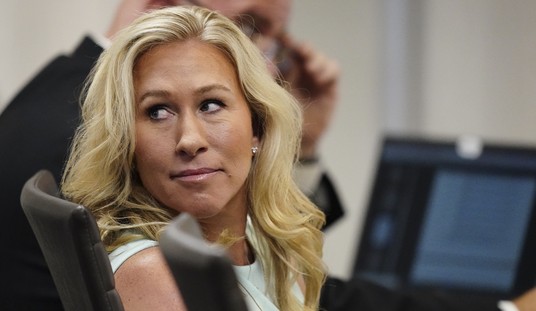Chris Cillizza at the Washington Post has a lot on his mind these days, and of course the future of the Republican Party is up near the top of the list. But, you might wonder, in the dawn of a mid-term cycle which is shaping up to potentially offer some bright spots for the Grand Old Party, why is he so concerned? Aren’t things going at least passably well at the moment?
Apparently not. No matter how many gains Republicans might see this November, there’s always 2016 to worry about. And what is the GOP’s biggest problem in the next presidential cycle? Is it Hillary? Liz Warren? A perilous demographic shift in the midst of a fight over immigration policy? Don’t be silly. The real problem, of course, is the Tea Party.
What if the tea party decides to walk away from the GOP in 2016? It could happen.
The relationship (or lack thereof) between the mainstream of the Republican party and the tea party has long been pooh-poohed by GOP strategists as standard operating procedure for a party out of the White House. The base and the establishment feud and, in the end, the base falls in line, they argue. But what if the tea party movement represents something new — and less manageable — for the establishment heading into the 2016 presidential race? …
[I]t’s not unreasonable to think that a similar out-in-the-open political brawl is coming for the big prize: The 2016 presidential nomination. The lines are already drawn — albeit somewhat crudely — with Sens. Ted Cruz and Rand Paul on the tea party side and people like Govs. Jeb Bush, Scott Walker and Chris Christie as well as Sen. Marco Rubio representing the establishment side.
Now, someone will win that fight — that’s the good thing about campaigns, someone always wins. But, the broader issue raised by Galen is whether the loser — assuming it is the tea party wing — will simply fold itself into the Republican party or go its own way.
It’s good that Chris is so concerned, and I’m sure you’re all grateful for his contributions to the discussion. But I have to wonder why there’s only one cutting edge of a double bladed sword mentioned in the endless parade of articles on this subject. The default assumption always seems to be that the 2016 Republican primary will eventually boil down to some sort of showdown between the “establishment” candidate and the “grassroots” candidate. Fair enough. We saw something similar in the last go around and there’s no reason to suspect that it won’t happen again. But the second part of the assumption seems to always be that the Tea Party candidate will lose and then – maybe – their supporters in the grassroots will stay home, leading to yet another humiliating defeat for the GOP.
Now, let’s not pretend that there isn’t a significant, and possibly growing strain of Let It Burn (LIB) attitudes among the base. We see plenty of evidence of that right here among the commentariat. (Yes, we actually do read the comments.) It’s a school of thought bred from an increasing and frequently justified sense of frustration over the tactics and strategies of the party leadership. This stands in contrast to the standard mantra of (as Cillizza acknowledges) the enemy of my enemy is my friend. In other words, rather than LIB, deciding that the squishy Republican who is right 75% of the time is still better than the Democrat who will be right 0% of the time.
But what if it went the other way? Let’s say the Tea Party candidate wins the nomination. (Chris lists Ted Cruz and Rand Paul in this role standing against Jeb Bush, Scott Walker, Chris Christie or Marco Rubio.) Is there any concern that the “establishment” portion of the base would simply stay home? Or should we assume that those voters will be far more prone to the Enemy of My Enemy school of thought and show up in the same numbers to support the upstart primary winner? The more I thought about it, the more sense that made. In fact, I’d say that the odds of the Tea Party candidate getting a larger percentage of the vote in the general election are quite high.
But the one thing that Cillizza doesn’t mention is a larger danger that the Tea Party faces. And that is the risk of turning into a big business themselves. If we can take anything away from the 2012 primary and the wave of 2010, it’s that the Tea Party seems to work best when they work on their own at the local level, with messy, disorganized meetings in local halls, boots on the ground knocking on doors, and small donations to individual candidates in each race. When the Tea Party tries to “grow up” and act like the establishment they seek to oust, problems arise. That seems to be demonstrated aptly when we look at how well the Big Tea Party organizations handle their money. (You’ll note from that article that the Tea Party Patriots gave more money in consulting fees to Jenny Beth Martin than they did to Matt Bevin.)
Either way, it’s something to watch once we finish up this mid-term cycle. Cillizza may be on to something here, though perhaps not what he started out trying to assert.







Join the conversation as a VIP Member